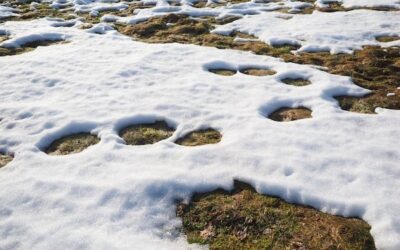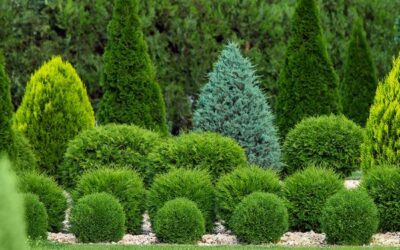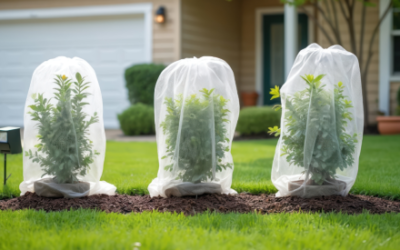As our awareness of environmental conservation grows, so does the importance of making eco-conscious choices in our daily lives. One significant area where we can contribute to sustainability is in our own yards. Creating a water-saving and eco-friendly landscape not only reduces your water bill but also helps conserve this precious resource for future generations. At Jack’s Lawn Care & Landscaping, we’re committed to helping you achieve a beautiful, lush yard while minimizing water consumption. In this blog post, we’ll share some water-saving landscaping ideas for an eco-friendly yard.
Choose Native Plants
One of the most effective ways to conserve water in your yard is to select native plants for your landscaping. Native plants are naturally adapted to your region’s climate and require less water than non-native species. They have developed mechanisms to thrive in the local environment, making them low-maintenance and drought-resistant. By incorporating native plants into your landscape design, you can significantly reduce your water usage.
Drought-Tolerant Landscaping
Drought-tolerant landscaping goes hand in hand with native plants. Consider xeriscaping, a landscaping technique that focuses on using drought-tolerant plants, rocks, mulch, and other materials to create a water-efficient and visually appealing yard. Xeriscaping not only reduces water consumption but also minimizes the need for mowing and maintenance.
Mulch, Mulch, Mulch!
Mulch is a water-saving hero in your landscape. Applying a thick layer of mulch around your plants and garden beds helps retain soil moisture, reduce evaporation, and inhibit weed growth. Organic mulches like wood chips, straw, or compost also enrich the soil as they break down over time. This means healthier plants that require less water to thrive.
Smart Irrigation Systems
Upgrading to a smart irrigation system can make a significant difference in water conservation. These systems use weather data and soil moisture sensors to determine when and how much to water your lawn and plants. They can adjust watering schedules automatically, reducing water waste from over-irrigation. Investing in a smart irrigation system is an eco-friendly choice that pays off both in water savings and cost savings over time.
Rain Barrels and Rain Gardens
Harvesting rainwater is an eco-friendly way to water your garden. Install rain barrels beneath your downspouts to collect rainwater from your roof. This collected rainwater can then be used to irrigate your plants, reducing your reliance on municipal water sources. Additionally, consider creating a rain garden, a strategically designed garden that utilizes rainwater runoff for irrigation while filtering out pollutants.
Group Plants with Similar Water Needs
Efficient landscape design involves grouping plants with similar water requirements together. This practice, known as hydrozoning, ensures that you’re not overwatering some plants while underwatering others. By creating hydrozones, you can optimize your watering schedule and reduce overall water consumption.
Use Permeable Surfaces
Incorporating permeable surfaces like permeable pavers, gravel paths, or decomposed granite in your landscape design allows rainwater to soak into the ground instead of running off. This reduces water runoff and helps replenish groundwater supplies. Plus, it adds a unique and eco-friendly touch to your yard’s aesthetics.
Consider Artificial Grass
For areas where maintaining natural grass is impractical or inefficient, consider artificial grass. Artificial turf not only requires no watering but also eliminates the need for mowing, fertilizing, and pesticides. It provides a lush, green appearance year-round without the environmental impact associated with traditional grass lawns.
Regular Maintenance
Proper maintenance is essential for an eco-friendly landscape. Regularly inspect your irrigation system for leaks or inefficiencies. Prune and trim your plants to encourage healthy growth and reduce water consumption. By keeping your landscape well-maintained, you can make the most of your water-saving efforts.
Education and Awareness
Finally, take the time to educate yourself and your family about water conservation practices in your yard. Encourage everyone to be mindful of water usage, such as turning off the hose when not in use or fixing leaky faucets promptly. The more awareness you create, the more significant impact you can have on water conservation.
In conclusion, creating an eco-friendly and water-saving landscape is not only beneficial for the environment but also for your wallet. By implementing these water-saving landscaping ideas, you can reduce your water consumption, lower your water bills, and contribute to a more sustainable future. At Jack’s Lawn Care & Landscaping,we’re here to assist you in transforming your yard into a beautiful and eco-conscious space. Contact us today to get started on your journey to an eco-friendly yard that conserves water and supports a greener world.



